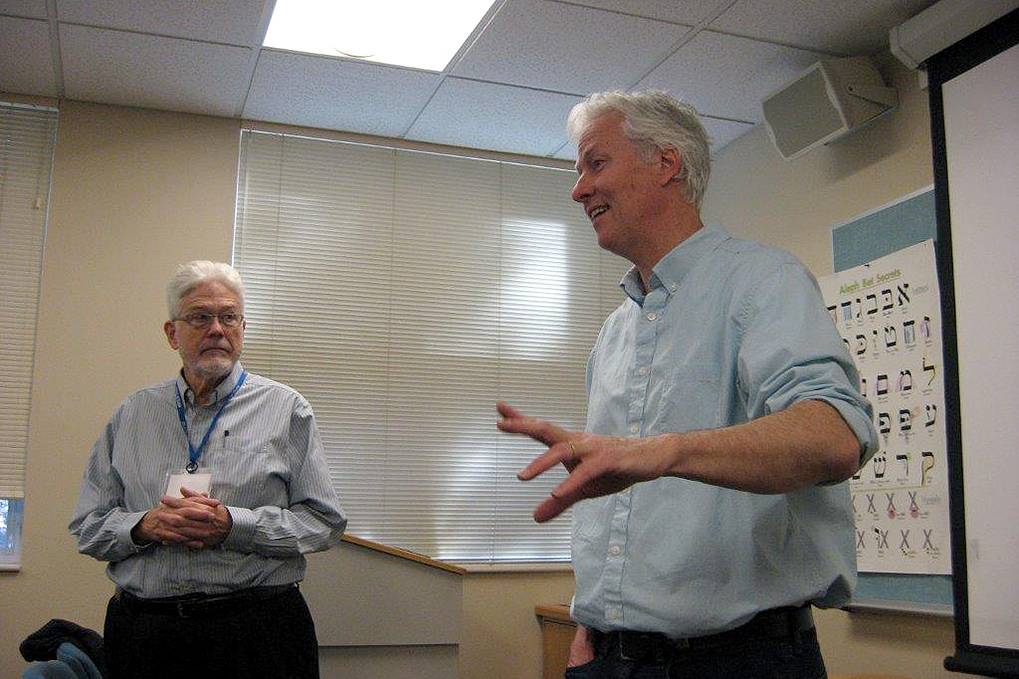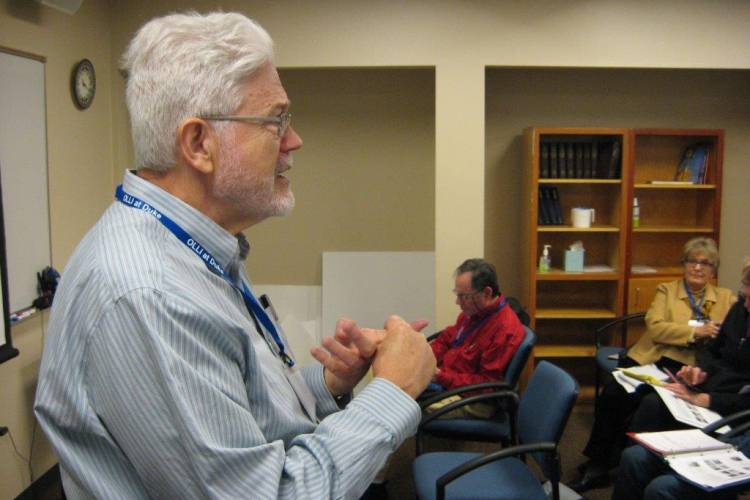OLLI Course Explores Durham's 'Documentary Ecosystem'

Alan B. Teasley, a retired teacher in the Durham Public Schools and a longtime member of the selection committee of the Full Frame Documentary Film Festival, is currently teaching the OLLI course “The Road to Full Frame.”
The festival, which has become an important stop on the festival circuit for filmmakers from around the world, takes place April 5-8 in and around the Carolina Theatre and Durham Convention Center in downtown Durham. Class sessions are designed to prepare participants to either attend the festival or just enjoy more fully the documentaries they’re already watching.
The class is exploring “the unique documentary ecosystem that Durham provides,” Teasley said, including Duke’s Center for Documentary Studies, the festival’s producer, and the Southern Documentary Fund, a local nonprofit that supports filmmakers.
Check the Full Frame schedule for event details: fullframefest.org.
When did you first get the idea to teach this class?
TEASLEY: For a while I’ve thought that OLLI members would really enjoy the festival, but some -- even if they knew about the festival -- felt it was intimidating to get tickets. I pitched the idea of the course to Garry Crites. He encouraged me to submit a proposal, and “The Road to Full Frame” was born.
What's the most surprising thing you have learned while planning for the class?
TEASLEY: I wanted the participants to learn more about the documentary “ecosystem” of Durham beyond the festival. I have served on the boards of Duke’s Center for Documentary Studies (CDS) and The Southern Documentary Fund (SDF), so I knew about what Durham offers in the way of teaching documentary skills and supporting filmmakers. In preparing for the class, I learned more about the variety of work being done right here at home. I delved into the “Scene on the Radio” audio podcasts being produced by John Biewen at CDS, and learned about Black Beach/White Beach, a new project at SDF which was having a screening at the Hayti Heritage Film Festival the very next weekend.
What video or audio clip has particularly resonated with the class?
TEASLEY: Class members really enjoyed “The Last Days of Freedom” (Best Short at the 2015 festival). However, much of their excitement has come from having to do their “homework” of seeing one documentary every week on their own. Fortunately, OLLI is presenting a documentary film series as a part of its 40th Anniversary Celebration, and Full Frame has presented its Winter Series (free screenings at the Carolina Theatre), so many class members attended “The Best of Enemies: Vidal vs. Buckley,” “Abacus: Small Enough to Jail,” “Strong Island” and “Jane.”

What has you most excited about this year’s festival?
TEASLEY: I’ve attended all 20 of the festivals, so I’m just excited that there will be a festival again in April. As of this interview, announcement of the film line-up is at least a month away, so it’s too early to be excited about particular titles or filmmakers. However, the thematic program will focus on True Crime, with films curated by filmmaker Joe Berlinger (director of “Brother’s Keeper,” “Paradise Lost” and “Metallica: Some Kind of Monster”), and Jehane Noujaim (director of “Start-up.com,” “Control Room” and “The Square”) will receive the 2018 Full Frame Tribute. Both have been nominated for Academy Awards and will appear throughout the festival.
What’s the best tip you can give to a novice festival filmgoer?
TEASLEY: I have four:
- If you can afford to, purchase a pass rather than depend on individual tickets; the pass will allow you take advantage of the Last Minute Line to see additional films beyond your allotted number of tickets.
- Read as much as you can about the films before you purchase your tickets, but follow your interests and passions rather than reviews.
- When in doubt about which film to choose during a particular time slot, go to the film showing in Fletcher Auditorium (the largest venue).
- Choose programs with filmmakers or film subjects present for Q&A. These can provide once-in-a-lifetime experiences. You may be able to see the film later on television or DVD or streaming, but you might never have the chance to see the filmmakers and the subjects of the films talk about their work. The live events at the festival are unique and priceless.